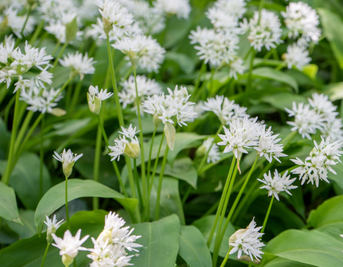Glue Ear and Sinus problems in children
by Julie McGregor - Medical Herbalist MCPP
Glue ear is a chronic condition where the middle ear fills up with sticky fluid. If the Eustachian tube, which connects the middle ear and throat, becomes blocked or swollen, fluid can be trapped in the middle ear. Because the Eustachian tube is shorter and less angled in children it is less easy for fluid to drain away. Chronically enlarged adenoids, tonsils and lymph glands can block the Eustachian tube. Therefore glue ear and recurrent ear infections are thought to be related to frequent upper respiratory infections like sinus and throat infections.
The sinuses are air-filled cavities situated behind the bones of the face and forehead. They are lined with mucous membrane and contain tiny holes which drain into the nose. Sinusitis is the inflammation of one or more of the sinuses. This can be caused by infection, particularly if the small drainage holes become blocked or can also be caused by irritation from things like chemicals, smoke and pollen.
More than 70% of children have had glue ear once by the time they are 4 and it is most common in the under 8’s. Chronic sinusitis is relatively rare in children but they can experience recurrent acute infections. The main symptom of glue ear is hearing loss and there can also be pain. Glue ear can itself lead to an increased likelihood of acute ear infections. Sinusitis symptoms can be slightly different in children compared to adults. A child may have a blocked or runny nose with green or yellow mucous which may drain into the throat and cause a cough. A child may snore, have bad breath or mouth breathe.
A common conventional treatment for glue ear is the surgical insertion of little drainage tubes called grommets. Sinusitis is typically treated with medicines such as nasal sprays and antibiotics.
A herbal approach to both these conditions is to address the underlying health issues. Herbs will support a child’s immune system and specifically focus on the upper respiratory system with herbs that have an anti-catarrhal, anti-inflammatory, decongestant, anti-allergy and tonic action. Herbs are taken internally but can also be used in inhalations, compresses and hand and foot baths. Oils or creams containing herbs and essential oils can be massaged around the ear, nose and throat. Ear drops should never routinely be used unless a parent or carer is certain that their child’s eardrum is not perforated.
Diet is an important area to concentrate on when treating glue ear or sinusitis. These conditions are commonly linked to food allergies and intolerances. Dairy products are a common culprit but wheat, refined carbohydrates and sugar should also be explored. As well as reducing or taking away foods there are plenty of helpful foods to include or increase in the diet. As altering a child’s diet can be a daunting prospect, it can be reassuring to have the advice and support of a qualified practitioner.
As well as causing discomfort or pain, glue ear can affect hearing. In a toddler speech and language development may be delayed. In an older child school work such as reading may be affected. It is also important to consult a practitioner if your child has either of these health problems as there can be complications.
Babies and small children get sick very quickly and the distress that it causes the parents can often mean that the child gets taken straight to the doctor. Ear infections, in particular glue ear, often reoccurs and some children, after repeated courses of antibiotics, end up having grommets put in. This is something that doctor and parent alike try to put off as long as possible as the operation often doesn’t have the desired result. An estimated 75% of children under four years old are affected by ear infections and glue ear and a number of parents are looking for alternatives to the roundabout of antibiotic treatments.
Some recent research suggests that glue ear is more common in children who are bottle fed rather than breast fed. Allergies to cow’s milk have been shown in some children and in practice many people find that changing the babies formula feed to one that is based on either soya or preferably goats milk can in some cases cure the problem.Many parents are nervous about cutting dairy foods out of a child’s diet. I would recommend doing it in consultation with an experienced practitioner who can give lots of dietary advice and support.
One of the most effective herbal medicines for treating glue ear is the herb Plantain. Growing in abundance throughout Scotland and often thought of as a weed, this herb has been used medicinally since Roman times. Roman foot soldiers would wrap plantain leaves around there feet whilst on long marches to help prevent blisters and bruises. As well as healing skin problems plantain also helps to clear upper respiratory catarrh. Children who have taken repeated courses of antibiotics are likely to have a lowered immunity and be more susceptible to infection.
As well as clearing up the presenting infection such as glue ear it is important to try and build up the underlying immunity. I find that Echinacea is the best herb to do this, taken either as drops in the tincture form or drunk as a tea. Children only need a few drops of the tincture and the taste can easily be disguised with fruit juice.
Children respond very well to herbal medicine. Qualified Herbalists who are Members of the National Institute of Medical Herbalists are experienced in treating children and know what they can and what they cannot treat. Always use a qualified practitioner to treat your children.
